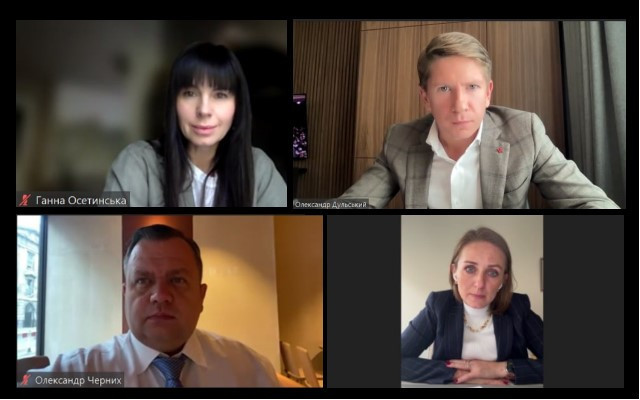
Is the peacetime practice of the ECHR not a precedent for Ukrainian courts?

The judicial practice that is currently being formed due to Ukraine's derogation from its obligations under international treaties (the Convention for the Protection of Human Rights and Fundamental Freedoms, the International Covenant on Civil and Political Rights) is worrying.
This opinion was expressed by Oleksandr Dulsky, Chairman of the Ukrainian National Bar Association's Committee on Integration of the Ukrainian Bar System into the EU, during a roundtable discussion on «Consequences of Ukraine's Derogation from its Obligations under International Treaties: Possibilities of Search by Interpol and Influence on Extradition Procedures».
As a reminder, Presidential Decree No. 64 of 24.02.2022 «On the Introduction of Martial Law» contains a list of articles of the Constitution (30 - 34, 38, 39, 41 - 44, 53), under which rights and freedoms may be temporarily restricted.
Later, a notification was sent to the UN Secretary-General, which declared a specific scope of restrictions with reference to the provisions of the International Covenant on Civil and Political Rights and the Convention for the Protection of Human Rights and Fundamental Freedoms, which Ukraine refuses to implement.
The essence of these restrictions is the possibility of compulsory alienation of privately owned property for the needs of the state in accordance with the established procedure, the introduction of curfews and, as a result, the prohibition of movement on the streets and in public places at certain times of the day, the establishment of a special regime of entry and exit, restrictions on the movement of citizens, inspection of belongings, vehicles, luggage, cargo, housing and prohibition of peaceful assemblies, rallies, marches, demonstrations, prohibition or restriction of the choice of place of residence and prohibition of citizens.
However, the practice of applying restrictions by the courts, according to O. Dulsky, is a cause for concern. As an example, he cited a decision made by a Ukrainian court in August 2024. It concerned the application of a preventive measure. The defense referred to a number of ECHR decisions, justifying the lack of reasonable suspicion, as well as the unproven existence of the risks claimed by the procedural opponents.
But the court used this position as one of its arguments. Since Ukraine is in martial law, hostilities are underway, part of the territory of Ukraine is under occupation, and mobilization measures continue in the country, the precedent-setting decisions of the ECHR concerning preventive measures, which the defense referred to in the petition and at the hearing, cannot currently be fully implemented in the practice of national courts. After all, they were adopted in peacetime. And they do not take into account the circumstances of the application of a preventive measure in wartime. At the same time, the issue was considered in Ivano-Frankivsk region, far from the front line.
During the event, the participants also outlined the key problems of extradition issues and shared methods of responding to challenges, discussed mechanisms for protecting persons facing extradition, and considered aspects of Ukraine's cooperation with the International Criminal Police Organization.
© 2026 Unba.org.ua Всі права захищені
"Національна Асоціація Адвокатів України". Передрук та інше використання матеріалів, що розміщені на даному веб-сайті дозволяється за умови посилання на джерело. Інтернет-видання та засоби масової інформації можуть використовувати матеріали сайту, розміщувати відео з офіційного веб-сайту Національної Асоціації Адвокатів України на власних веб-сторінках, за умови гіперпосилання на офіційний веб-сайт Національної Асоціації Адвокатів України. Заборонено передрук та використання матеріалів, у яких міститься посилання на інші інтернет-видання та засоби масової інформації. Матеріали позначені міткою "Реклама", публікуються на правах реклами.